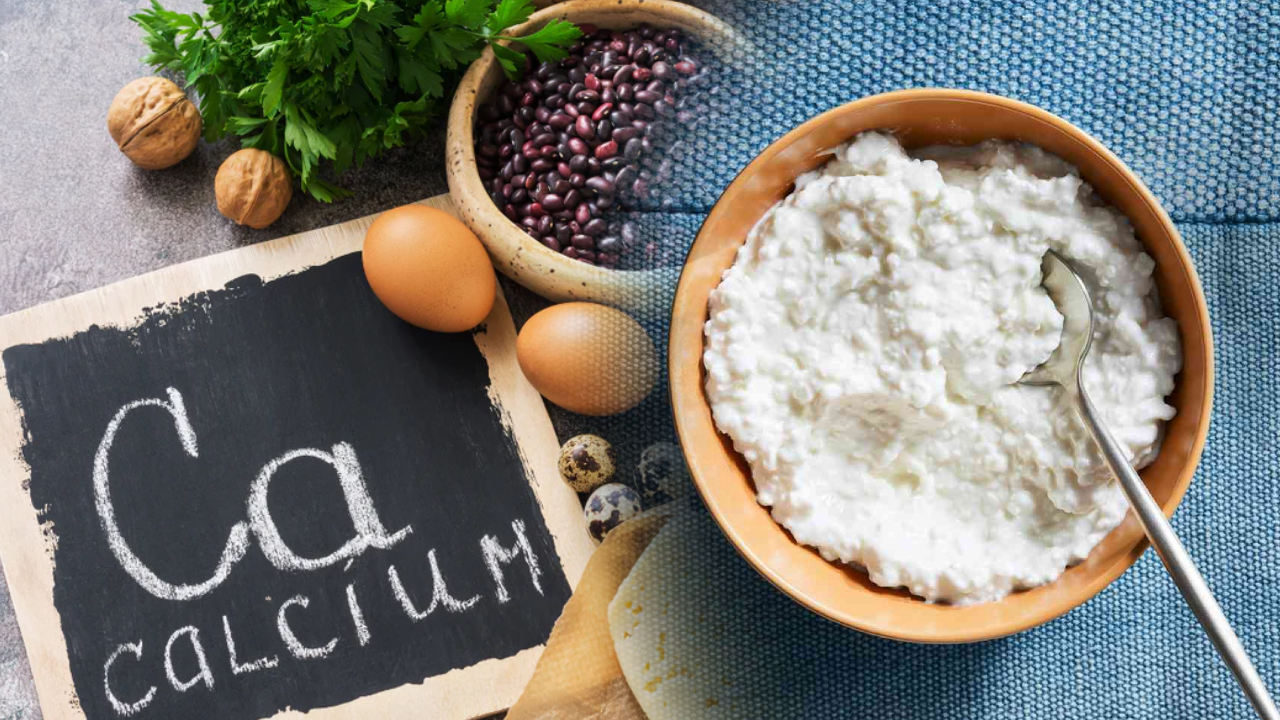Cottage cheese has been around for centuries, but in recent years, it has surged in popularity as a staple in health-conscious diets. Whether you see it on Instagram fitness influencers’ breakfast plates or find it in high-protein diet plans, cottage cheese seems to have made a name for itself as a ‘health food.’ But what is it about this simple, unassuming dairy product that has captured the attention of so many? Is cottage cheese actually a health food, or is it just another fad riding the wave of the protein craze?
Let’s dive deep into what cottage cheese offers and whether it truly deserves its place in a balanced diet.
Table of Contents
What is Cottage Cheese?
Cottage cheese is a fresh cheese curd product with a mild flavor and creamy texture. Unlike aged cheeses, cottage cheese doesn’t undergo a fermentation or maturation process. It’s made by adding an acid (such as vinegar or lemon juice) to milk, which causes the milk solids to curdle. These curds are then drained, leaving behind the characteristic texture of cottage cheese. The end product can vary in consistency depending on how much whey is left, and it comes in several fat content options—ranging from full-fat to fat-free versions.
Because of its relatively simple production process and short shelf life compared to other cheeses, cottage cheese is often seen as a fresh and minimally processed food, appealing to those looking for whole, nutrient-rich options.
Nutritional Breakdown: A Snapshot
One of the most appealing aspects of cottage cheese is its impressive nutrient profile. A standard serving of low-fat cottage cheese (about 1 cup or 226 grams) contains the following:
- Calories: 206
- Protein: 27 grams
- Fat: 6 grams (2 grams of saturated fat)
- Carbohydrates: 6 grams
- Calcium: 14% of the daily recommended intake
- Phosphorus: 30% of the daily recommended intake
- Sodium: Around 20% of the daily limit (this can vary based on the brand and whether it’s low-sodium cottage cheese)
- Vitamin B12: 8% of the daily recommended intake
- Riboflavin: 10% of the daily recommended intake
This breakdown shows that cottage cheese is not only a high-protein, low-calorie food but also a source of several important vitamins and minerals. Its combination of macronutrients—particularly the protein content—makes it a popular choice for those looking to build or maintain muscle mass, manage their weight, or simply increase their daily protein intake without consuming large amounts of calories or fat.
The Protein Powerhouse: Why Cottage Cheese is a Fitness Favorite

One of the main reasons cottage cheese is hailed as a health food is its high protein content. A single cup of cottage cheese can pack up to 27 grams of protein, which is significantly more than many other dairy products. This protein is also considered “complete” because it contains all nine essential amino acids that the body cannot produce on its own.
For athletes, bodybuilders, and fitness enthusiasts, this makes cottage cheese a great post-workout snack. The high protein content helps with muscle repair and recovery, while the relatively low calorie and fat content make it easy to fit into a variety of dietary plans. Additionally, cottage cheese contains casein, a type of slow-digesting protein that helps provide a steady release of amino acids, making it an excellent choice for people who want to avoid muscle breakdown overnight.
A Weight-Loss Ally
Beyond its muscle-building benefits, cottage cheese has gained recognition as a weight-loss-friendly food. Its low-calorie, high-protein composition makes it filling and satisfying, which can help reduce overall calorie intake throughout the day. Research has shown that high-protein foods help promote feelings of fullness and may reduce levels of the hunger hormone ghrelin. This means that a snack or meal that includes cottage cheese could potentially help stave off hunger and reduce the temptation to overeat.
In addition, cottage cheese is relatively low in carbohydrates, which appeals to those following low-carb or ketogenic diets. It provides the body with a healthy dose of protein and fats without the extra carbs that can spike insulin levels. The versatility of cottage cheese means it can easily be incorporated into meals, whether as a standalone snack or added to salads, smoothies, or even savory dishes.
The Calcium and Bone Health Connection

Cottage cheese is also a good source of calcium, a mineral essential for strong bones and teeth. While it might not contain as much calcium as some aged cheeses, cottage cheese still contributes a meaningful amount to daily calcium needs, especially in those who consume it regularly. Adequate calcium intake is crucial for preventing bone-related conditions like osteoporosis, especially in older adults and post-menopausal women, who are at higher risk for bone density loss.
In addition to calcium, cottage cheese provides phosphorus, another mineral essential for bone health. The combination of calcium and phosphorus in cottage cheese works synergistically to maintain bone strength, making it a beneficial addition to the diet of those looking to preserve or enhance their skeletal health.
Potential Drawbacks: Sodium and Additives
While cottage cheese has a lot going for it, there are some potential downsides to consider. One of the most significant is its sodium content. Depending on the brand and variety, cottage cheese can be quite high in sodium, with some versions containing more than 800 milligrams per serving. For people who need to monitor their sodium intake due to conditions like high blood pressure or heart disease, this can be a concern.
Thankfully, there are low-sodium varieties available, but they may not be as widely stocked in grocery stores. If sodium is a concern, it’s important to read labels carefully and opt for these lower-sodium options whenever possible.
Another potential downside is that some cottage cheese brands include additives like thickeners or preservatives to improve texture and shelf life. These additives don’t necessarily make cottage cheese unhealthy, but those who prefer a more natural, minimally processed diet may want to choose brands that use fewer additives. Organic or small-batch cottage cheese options may be more aligned with these preferences.
Cottage Cheese and Lactose Intolerance
Dairy products are often a no-go for people with lactose intolerance, a condition where the body has difficulty digesting lactose, the sugar found in milk. Fortunately, many people with lactose intolerance can tolerate cottage cheese better than other dairy products because it contains relatively low amounts of lactose compared to milk or ice cream. This is due to the curdling process, which removes a significant portion of the lactose. However, this tolerance can vary depending on the individual and the type of cottage cheese.
For those who are severely lactose intolerant, there are lactose-free cottage cheese options available that provide all the same nutritional benefits without the digestive discomfort.
Versatility in Diets
Cottage cheese is incredibly versatile and can be easily integrated into a variety of diets. It works well in both sweet and savory dishes, making it an ideal component for breakfast, lunch, dinner, or snacks. Here are some ways you can incorporate cottage cheese into your daily diet:
- Breakfast: Pair cottage cheese with fresh fruit, nuts, and honey for a quick and filling breakfast.
- Salads: Add a scoop of cottage cheese to salads for an extra boost of protein and creaminess.
- Smoothies: Blend cottage cheese into your morning smoothie for added creaminess and a protein kick.
- Savory Snacks: Use cottage cheese as a dip for vegetables or whole-grain crackers.
- Desserts: Cottage cheese can be used as a base for healthier cheesecake alternatives or mixed with cocoa powder and a sweetener for a high-protein dessert.
